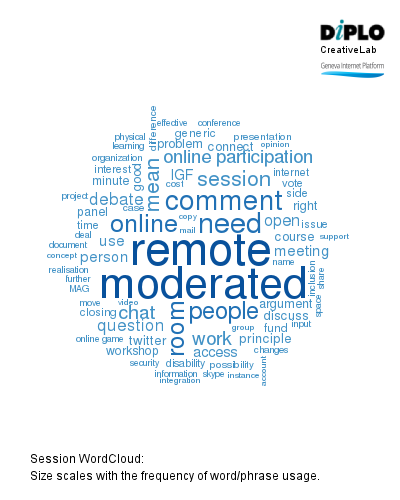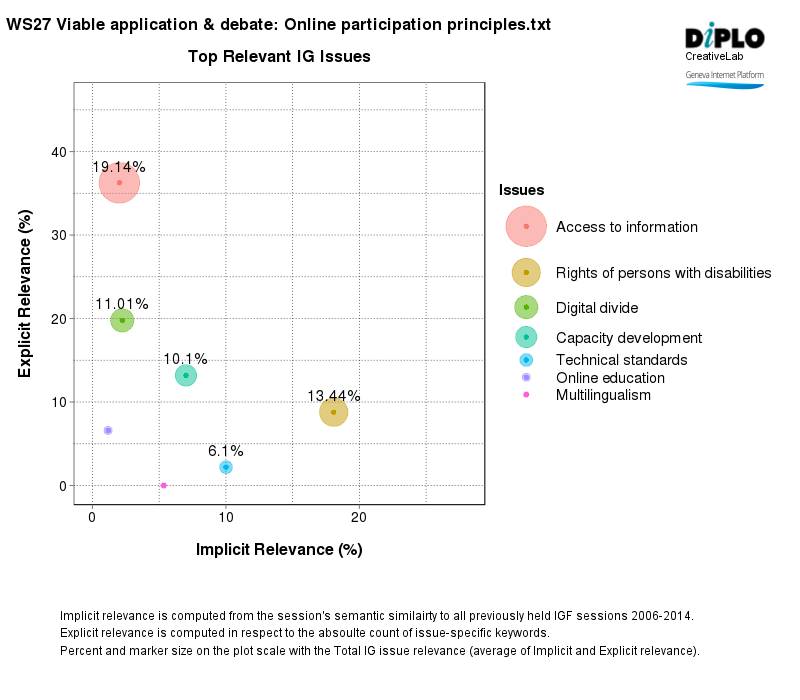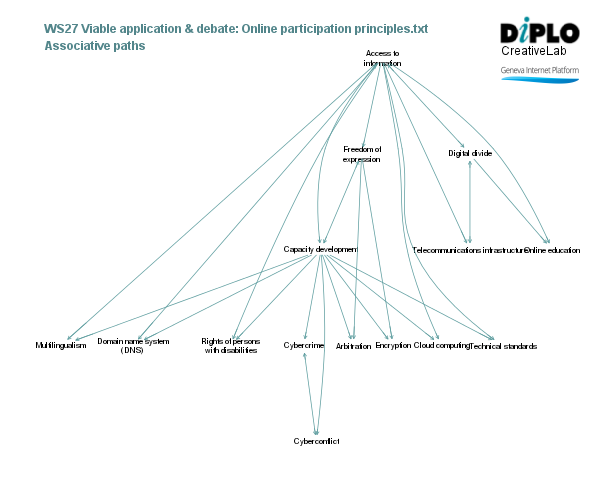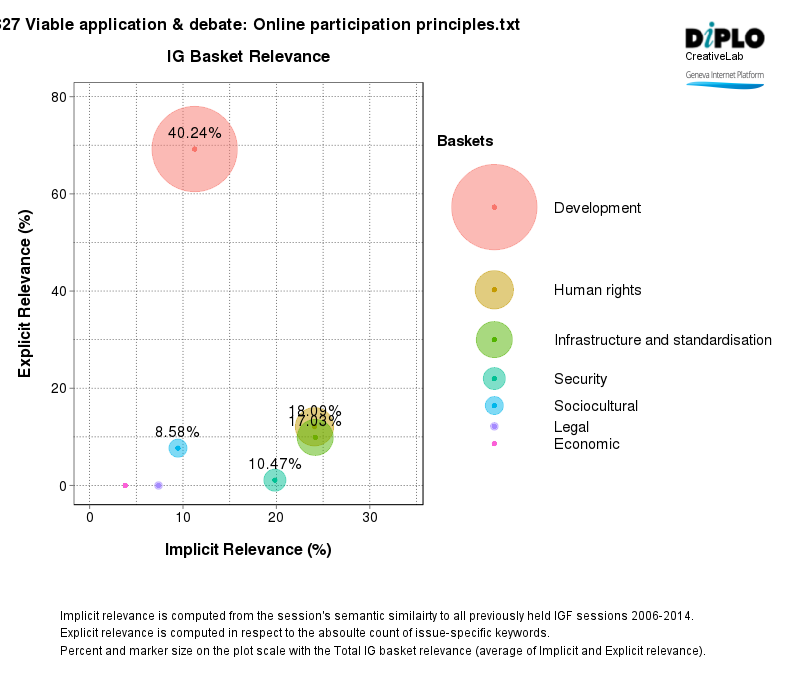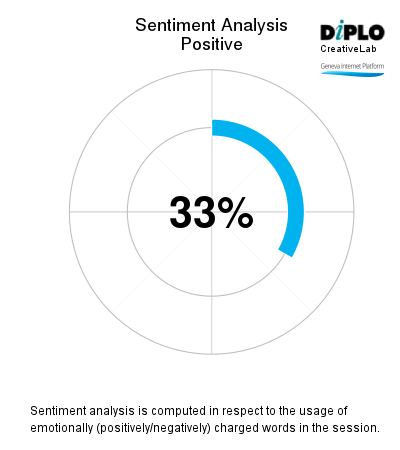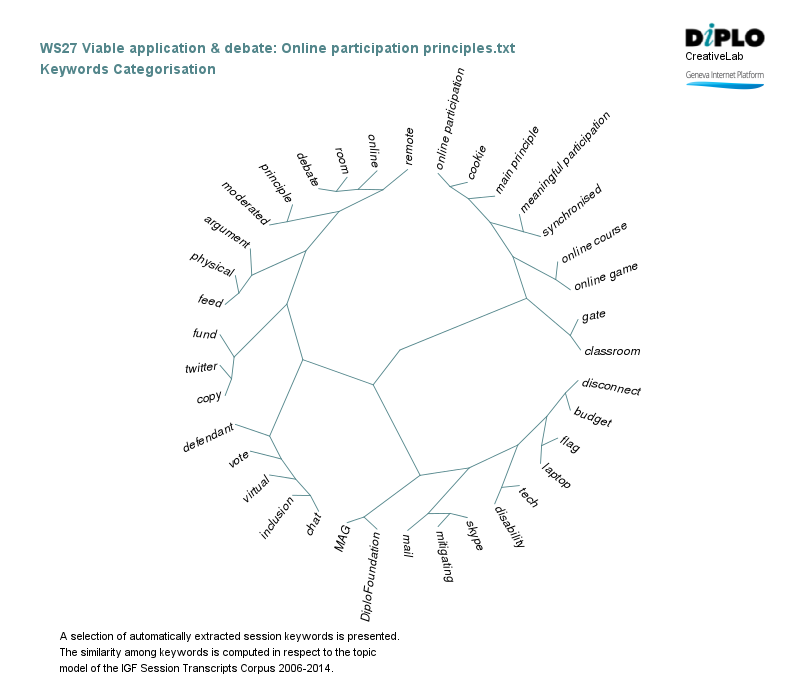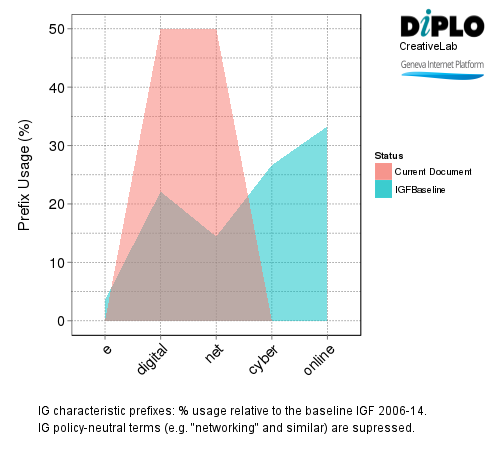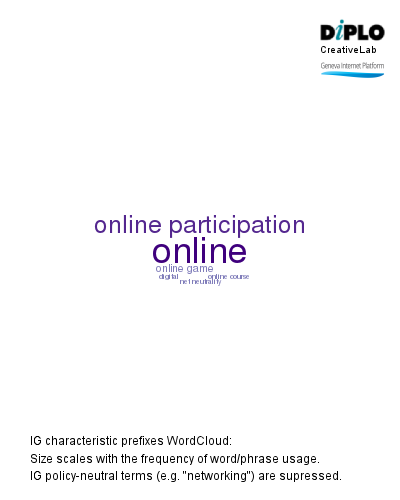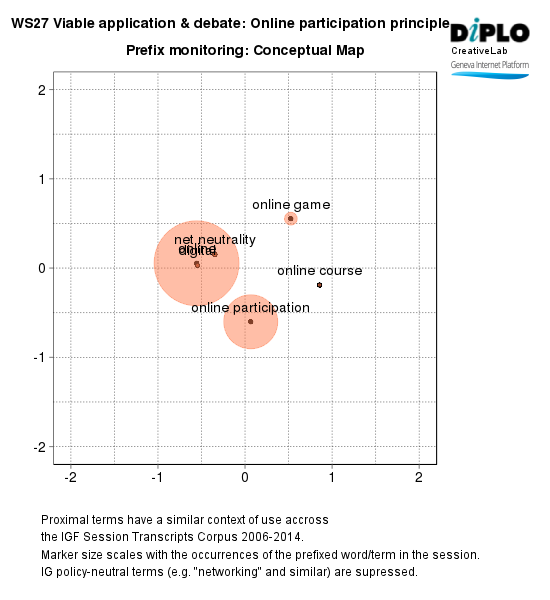Viable application & debate: Online participation principles
12 Nov 2015 16:00h - 17:30h
Event report
Online participation, also known as remote participation or e-participation, was the center of this panel discussion. Online participation is the possibility offered, using different technologies, to allow people interested in a particular meeting, but who are not able to travel and be physically present, to engage with the meeting.
The debate on e-participation started at IGF in Nairobi (2011) and the E-Participation Principles Final Draft was presented today for reference and comments to participants, and a link was shared with remote participants of the workshop.
Virginia (Ginger) Paque, from Diplo Foundation, presented the Principles on Remote Participation:
- Inclusiveness
- Equality of participation
- Scale and stability: there should be funding available to make it available
- Capacity building
- Providing platforms: for example for people with disabilities, mechanisms, and platforms need to be found.
- Integrating e-participation in all workshop planning
An Oxford-style discussion then took place on the motion: “As a general rule (excluding closed meetings or special circumstances), online participants should have equal footing with in-situ participants in open conferences and meetings”. The panelists were divided into two groups; some supporting the motion, others opposing it.
These two groups presented their arguments, and comments from participants in-situ and online were received as well.
An important question for reflection raised by the moderator, Vladmir Radunovic from DiploFoundation, was that if we all agree that remote participation in IGF was important, and if we need to give it equal footing to in-situ participants, why does the IGF MAG not give a lot of attention to funding it?
In answer to this question, a participant in support of remote participation expressed his view that if you are physically in the meeting room, or you are not a remote moderator, you are not really concerned about e-participation, whether it is available, working or not.
One of the panelists, Angelic Alihusain-del Castilho, Sr. Policy Advisor Ministry of Foreign Affairs Surinam, commented that: ‘Remote participation helps governments and organizations save money because they don’t need to travel to every meeting. Sometimes, it is because they are not aware of the possibility of participating online in meetings that are not negotiations.’
Participants and panelists all agreed that we need to work on educating young people, and anyone else about the possibilities of attending meetings online, so that they don’t need to feel bad when they cannot travel.
By Arsene Tungali
Session Analytics
Session analytics on Digital Watch are produced from computational text-mining and statistical modeling of the IGF session raw transcripts.
All analytics are produced from DiploFoundation’s Text-Analytical Framework (DTAF).
Related topics
Related event


